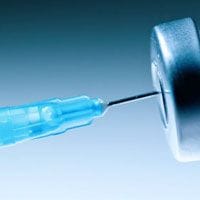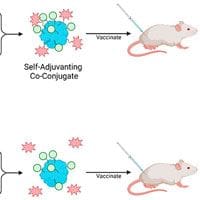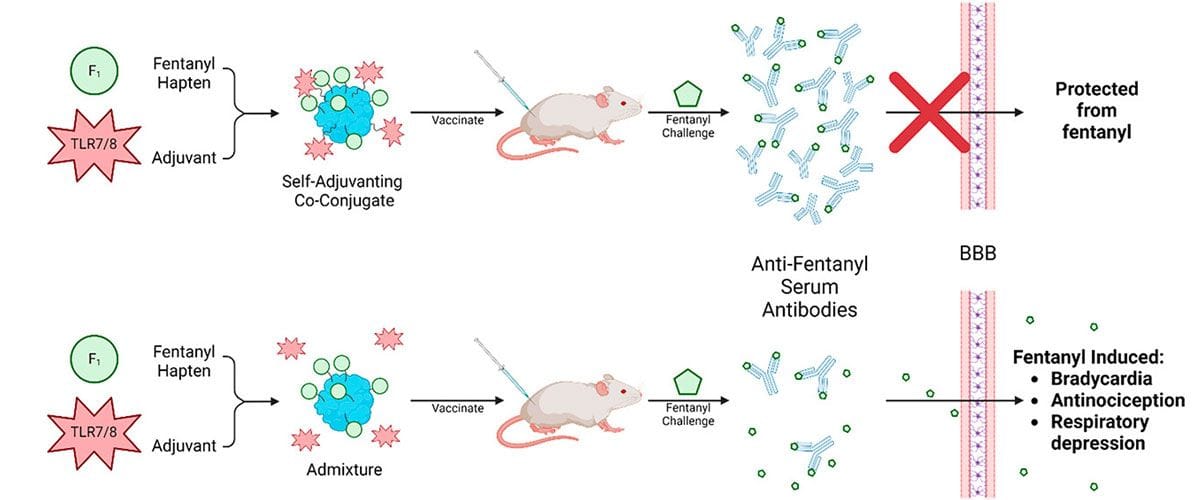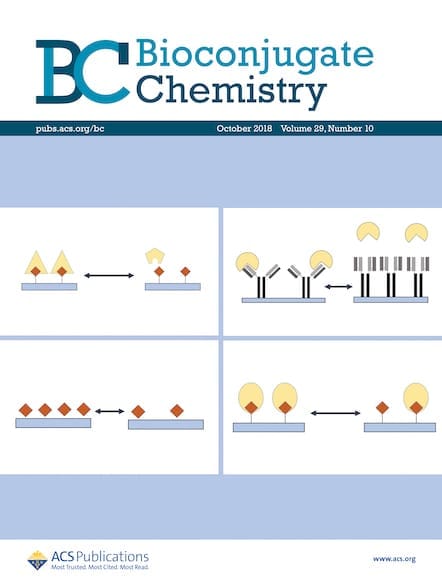The opioid crisis continues to destroy and take lives, but chemists may be on the right track to a solution that will help safely combat fentanyl addiction and other opioid use disorders.

Studies estimate that more than 2.7 million adolescents and adults in the United States are living with an opioid use disorder (OUD).1 This is a complex illness characterized by an uncontrollable compulsion to consume opioids, despite the user's desire to quit or the drug's detrimental impact on their physical and emotional health. This often leads to a neglect of responsibilities in professional, academic, or domestic settings. Beyond the extreme risks of overdose and fatality, OUDs devastate lives long before such tragic endpoints occur.
Opioids include the illegal drugs heroin and fentanyl, as well as the legal pain medications oxycodone, codeine, and morphine. Medications such as methadone are available for treating OUDs, but they are not without disadvantages2—and many people using these treatments are at high risk for relapse.

On-Demand Opioid Reversal
Fentanyl represents a particular problem. Synthetically made, the potency of its analogues are 3- to 10,000-fold higher than that for morphine. Now, new studies are taking a deeper dive into whether vaccines can play a pivotal role in battling fentanyl addiction. These vaccines combine innovative fentanyl-related substances with carrier proteins to produce drug-specific antibodies, ultimately sequestering any drug in the serum and keeping it away from the opioid receptors in the brain.3-4
A recent article published in Bioconjugate Chemistry demonstrates new advances for enhanced protection against fentanyl addiction and OUDs with a self-adjuvanting co-conjugate vaccine. The authors note that while vaccines have been considered as a potential treatment for various substance use disorders, they have yet to have achieve clinical success due to insufficient antibody levels.

Self-Adjuvanting TLR7/8 Agonist and Fentanyl Hapten Co-Conjugate Achieves Enhanced Protection against Fentanyl Challenge
DOI: 10.1021/acs.bioconjchem.3c00347
With this in mind, the team combined a Toll-like receptor 7/8 (TLR7/8) stimulant (UM-3006) with a fentanyl-based substance (F1) on a carrier protein. When tested on mice, results showed a marked improvement in the production of high-affinity, fentanyl-specific antibodies—and even greater protection when used with an aluminum hydroxide adjuvant, which echoes earlier findings with another bivalent conjugate.6
Additionally, the vaccine was able to protect against fentanyl-induced antinociception, bradycardia, and respiratory depression—a chest muscle rigidity seen with fentanyl and known as “wooden chest syndrome.” Importantly, this effect is mediated by cholinergic and alpha-adrenergic receptors and is not sufficiently reversed by existing opioid receptor antagonists.

Vaccines seem to offer a promising strategy to reduce the prevalence of OUDs, and to prevent toxicity from accidental and deliberate exposure to fentanyl and its derivatives. These results showcase the adaptability of the highly modular platform that the group has developed—for which there is likely to be promise with other vaccine antigens to address multiple unmet medical needs.
References
- Opioid Use Disorder. Centers for Disease Control and Prevention, 2022.
- The Effectiveness of Medication-Based Treatment for Opioid Use Disorder. National Academies of Sciences, Engineering, and Medicine; Health and Medicine Division; Board on Health Sciences Policy; Committee on Medication-Assisted Treatment for Opioid Use Disorder; Mancher M, Leshner AI, editors. Medications for Opioid Use Disorder Save Lives. National Academies Press; 2019.
- Robinson, C. et al. Therapeutic and Prophylactic Vaccines to Counteract Fentanyl Use Disorders and Toxicity. J. Med. Chem. 2020, 63 (23), 14647–14667.
- Baehr, C. et al. Preclinical Efficacy and Selectivity of Vaccines Targeting Fentanyl, Alfentanil, Sufentanil, and Acetylfentanyl in Rats. ACS Omega 2022, 7, 19, 16584–16592.
- Powers, N. et al. Self-Adjuvanting TLR7/8 Agonist and Fentanyl Hapten Co-Conjugate Achieves Enhanced Protection against Fentanyl Challenge. Bioconjugate Chem. 2023, 34, 10, 1811–1821.
- Barrientos, R. C. et al. Bivalent Conjugate Vaccine Induces Dual Immunogenic Response That Attenuates Heroin and Fentanyl Effects in Mice. Bioconjugate Chem. 2021, 32, 11, 2295–2306.

